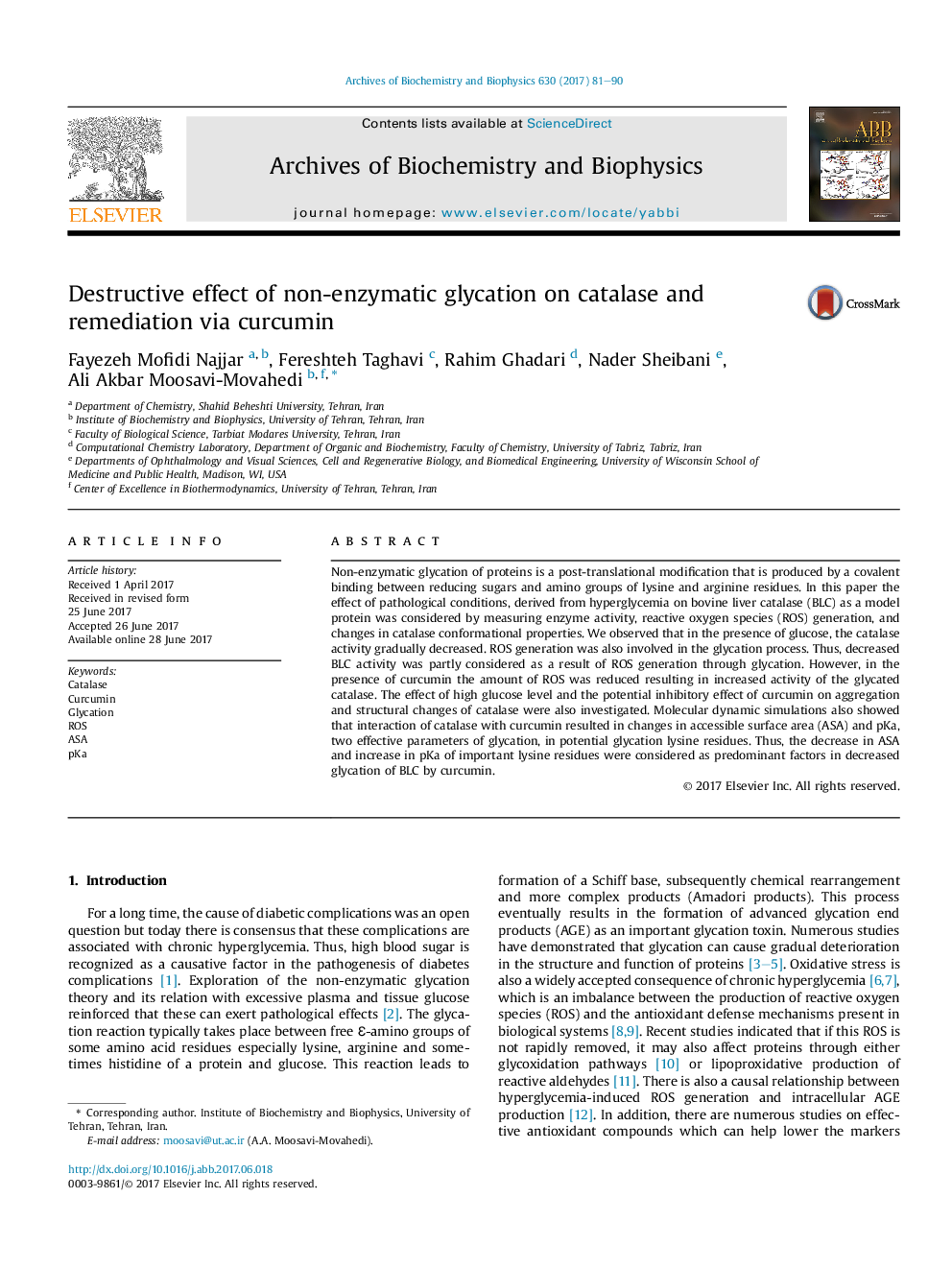| کد مقاله | کد نشریه | سال انتشار | مقاله انگلیسی | نسخه تمام متن |
|---|---|---|---|---|
| 5504315 | 1536275 | 2017 | 10 صفحه PDF | دانلود رایگان |
- Glycation can decrease catalase activity and increase ROS generation.
- Glycation can induce aggregation and structural changes of catalase.
- Curcumin, as a natural product, can maintain the catalase against glycation.
- Some lysine residues are likely target of glycation.
- Curcumin can decrease ASA and increase pKa of these lysine residues.
Non-enzymatic glycation of proteins is a post-translational modification that is produced by a covalent binding between reducing sugars and amino groups of lysine and arginine residues. In this paper the effect of pathological conditions, derived from hyperglycemia on bovine liver catalase (BLC) as a model protein was considered by measuring enzyme activity, reactive oxygen species (ROS) generation, and changes in catalase conformational properties. We observed that in the presence of glucose, the catalase activity gradually decreased. ROS generation was also involved in the glycation process. Thus, decreased BLC activity was partly considered as a result of ROS generation through glycation. However, in the presence of curcumin the amount of ROS was reduced resulting in increased activity of the glycated catalase. The effect of high glucose level and the potential inhibitory effect of curcumin on aggregation and structural changes of catalase were also investigated. Molecular dynamic simulations also showed that interaction of catalase with curcumin resulted in changes in accessible surface area (ASA) and pKa, two effective parameters of glycation, in potential glycation lysine residues. Thus, the decrease in ASA and increase in pKa of important lysine residues were considered as predominant factors in decreased glycation of BLC by curcumin.
Journal: Archives of Biochemistry and Biophysics - Volume 630, 15 September 2017, Pages 81-90
